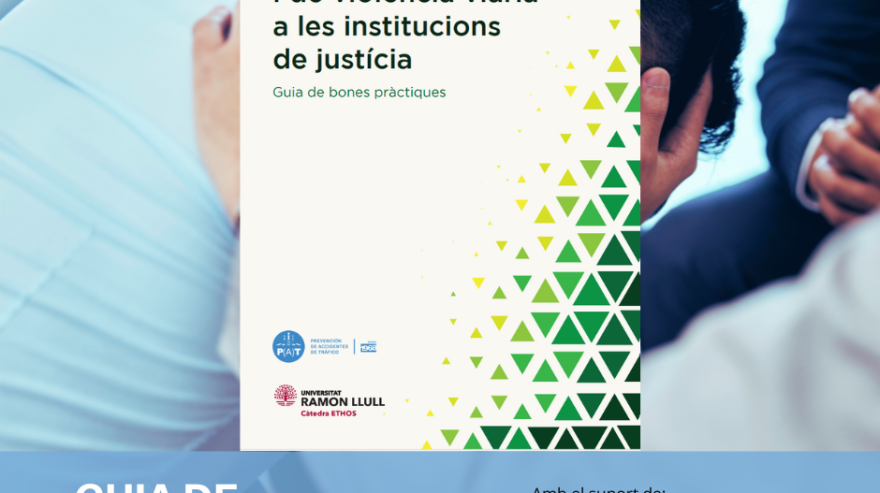
P(A)T launches a guide of good practices for improving care for victims of road crashes in Justice Institutions
In commemoration of the World Day in Memory of Traffic Victims, the Association for the Prevention of Traffic Accidents (P(A)T), together with Dr. Francesc Torralba, professor at the Ramón Llull University, present a fundamental guide aimed at improve care for victims of road accidents in justice institutions. The experience of a traffic accident represents an abrupt and radical cut in the lives of those who experience it and their families. After the accident, a series of processes of various kinds begin, completely necessary, but which, unfortunately, are a source of suffering and, according to the experience of the association, secondary traumatization.
This guide, presented at the Association of Journalists of Catalonia, aims to protect victims and raise awareness among judicial operators about the importance of combining technique and rigor with a human approach. To achieve this, it is essential that professionals recognize that they are dealing with sensitive issues and that they must adapt their approach to the emotional needs of the victims, since according to different studies between 80% and 90% of trafficking victims feel mistreated. For justice.
“We demand respect, empathy, and humane and dignified, careful and sensitive treatment towards each of the victims of traffic accidents and road violence. With this objective we present this Good Practices Guide.” Francesc Torralba
Based on the joint reflection of the participants in the working groups formed by, in addition to the Prosecutor’s Office, criminal and civil magistrates, lawyers specializing in traffic and road safety issues and psychologists specializing in grief and trauma, coordinated by the Ethos Chair . It is summarized in 30 points that seek to avoid the feeling of abandonment that many victims experience in their relationship with justice. This is often due to a lack of information and the absence of specialized support. Victims are not always listened to or treated with dignity by competent and specialized professionals, and their needs for time and space are rarely respected. Furthermore, victims often lack knowledge about the processes they must face. While it is essential that administrative and judicial procedures follow full technical and legal guarantees, it is also essential that victims feel involved, receive the necessary explanations and obtain adequate support to deal with their emotional situation.
This guide is presented at the XXV Mediterranean Road Safety Conference, with the presence, among others, of Aleksandra Ivankovic, deputy director of VICTIM SUPPORT EUROPE, Jordi Jané, professor of Constitutional Law, at the Judicial School of the European Union, and Ramón Lamiel, director of the Servei Català de Trànsit and Pere Navarro, director of the General Directorate of Traffic.











